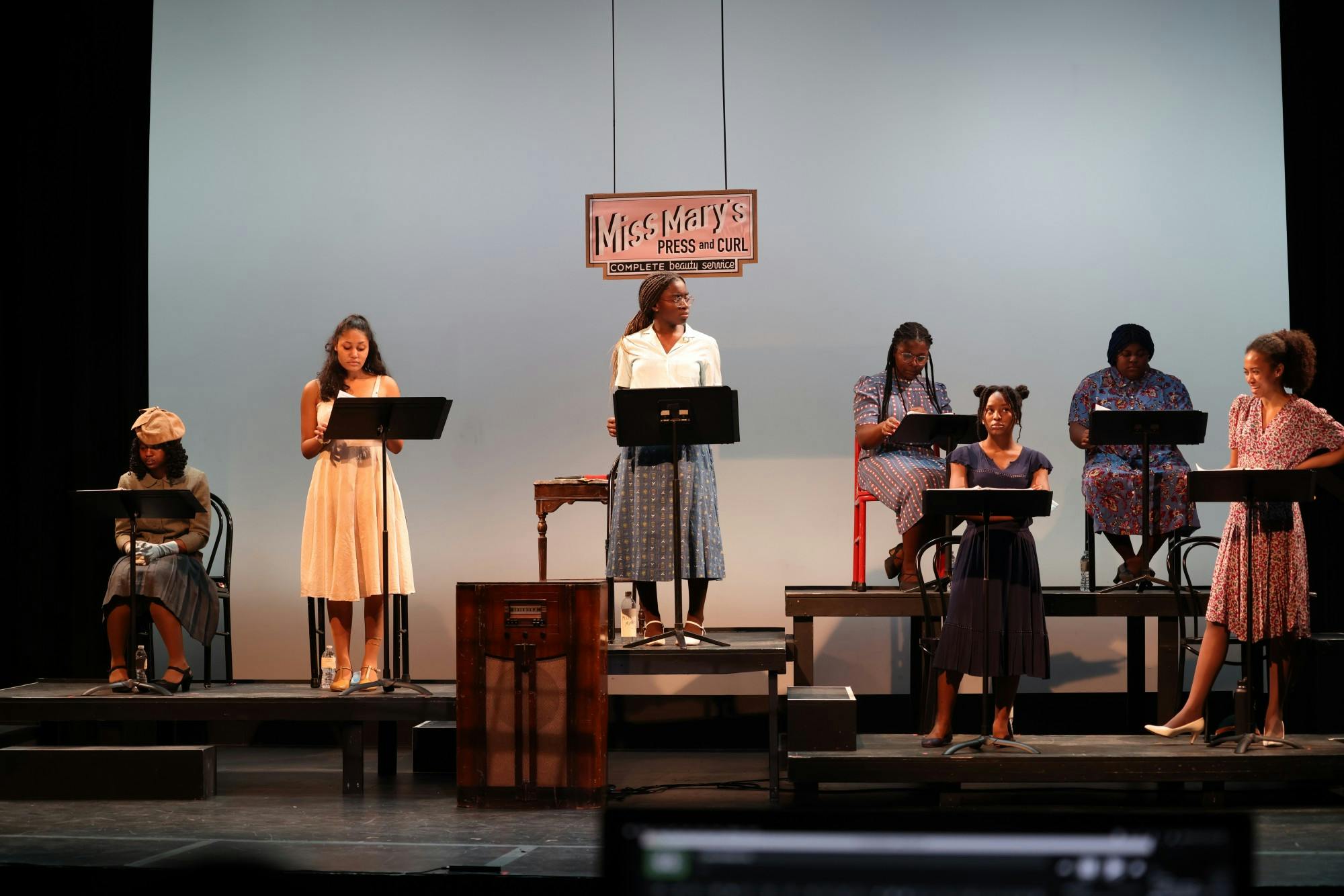This upcoming weekend, the theater department’s Fall Staged Reading Series — the department’s MainStage production this term — will bring three staged readings to the Hopkins Center for the Arts’ Warner Bentley Theater. The series, which will feature Dartmouth student performers, diverges from typical theater productions in relying on minimal set and actor movement.
“Poor Clare,” written by Chiara Atik and directed by Dartmouth theater professor Peter Hackett, premieres on Friday, Oct. 29 at 8 p.m. The play — which is framed by contemporary language but is based on the life of historical figures from the Middle Ages — follows the noblewoman Clare, who has begun to realize the social injustice of the world around her after an interaction with Saint Francis.
The second play, “Ridgway,” written by Charlie O’Leary and directed by visiting artist Kareem Fahmy, tells the story of two journalists’ — one white and one Latino — investigation of a decades-old murder rumored to involve a gay love triangle in Western Pennsylvania. According to the event website, the play aims to raise parallels between the past and the present to ask “Who can live safely in rural America?” The theater department’s reading of the play will premiere this coming Saturday.
Lastly, “Saturday Night/Sunday Morning,” written by Katori Hall and directed by visiting artist Kemati Porter, will premiere on Oct. 31 at 5 p.m. The story, which takes place during the end of World War II at a beauty parlor and boarding house in Memphis, Tennessee, focuses on the lives of a group of young Black women as they grapple with “love, sexuality and sisterhood” amid a background of social change and post-war trauma, according to the play’s description.
Hackett said the department deliberately chose plays written in the 21st century, adding that the more barebones format of a reading would allow audiences to more easily focus on and engage with the ideas in the plays.
“My hope is that audiences will then read other plays by these same authors or their contemporaries,” said Hackett.
Though, according to Hackett, the plays were not intentionally chosen to be in conversation, they happen to share the theme of social injustice.
During the College’s transition back to on campus learning, the theater department remained mindful of the potential impact of COVID-19 measures on the feasibility of a MainStage production. According to Hackett, the department decided to put on staged readings for this term’s MainStage production because the format would allow for an easier transition to the remote format in the event of another lockdown.
Jacqui Byrne ’22, who portrays Clare in “Poor Clare,” said she was initially hesitant about the structure of a staged reading, as she was more familiar with traditional staged productions. However, she said she grew to appreciate the performance medium.
“I really enjoyed it, but I didn't really get it [at first] … because I am so attached to a full production of theater,” said Byrne. “Because it’s so barebones, because we are doing a staged reading, we really dive into the meaning of the play.”
Byrne said that the incorporation of blocking, movement and props have made the staged reading more dynamic and interpretive.
“It isn’t just people sitting on stage and reading from a script, it is dynamic and evolved,” said Byrne. “We’ve been doing a lot of blocking and making sure we’re still moving around and involving props … the text is obviously at the forefront, but you’re still getting what the play would look like.”
In bringing three plays to the stage in a single weekend, the Fall Staged Readings production allowed for more student performers to be cast than usual. Brianna Parry, the production manager of the project, said that the unique format of this year’s productions fosters student engagement by making the project accessible to more performers.
“The bigger draw is being able to have more students participate, and participate in a lower-stakes way where we’re not asking you to commit six weeks of your life to us, we’re asking you to commit three weeks to us,” said Parry. “So we [are] hoping that we’ve gotten some people to be in this play that wouldn’t normally be in a play.”
Parry added that the fact that actors are not required to memorize the script has been crucial in attracting incoming freshmen to the project. Compared to a typical year’s MainStage production, in which most of the roles would go to upperclassmen, the Fall Staged Readings allow room for greater first-year involvement.
Gwendolyn Roland ’25, an actress in “Poor Clare,” expressed excitement at the opportunity to be so closely involved in a theater production this early in her Dartmouth career.
“It is a great opportunity as a first year student to be in a seven-person play that’s a MainStage,” said Roland. “Even though I am not the title character, I am very involved in the show, and I think that’s going to be a lot of fun, and I think that’s not an opportunity that we may have gotten otherwise.”




